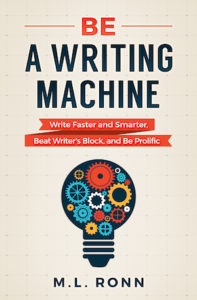I’m taking another zero today. Here’s another chapter from Indie Author Confidential Vol. 10. Get it here: https://www.authorlevelup.com/confidentialvol10
AUDIO: THE GREAT CONCEALER
I was listening to a fiction audiobook that I enjoyed immensely. In fact, I enjoyed it so much that I listened to it twice.
The novel taught me a lot about characterization and dialogue. As with all novels I read that I enjoy, I study them afterward to determine how the author kept me spellbound.
When I loaded the e-book edition and reread the chapters I loved, I noticed something strange. The pages didn't look like what I was used to.
When I read the works of a mega-bestsellers, I am used to seeing shorter paragraphs and sentences for faster-paced scenes, and the opposite for longer-paced scenes. Most scenes fall somewhere in the middle.
This novel didn't follow that rule at all. The fast-paced scenes were big and blocky, and the slow-paced scenes were even bigger and blockier. This broke some of the rules that I know mega-bestsellers adhere to.
The author that wrote this book was not a mega-bestseller (though they are extremely successful in their own right, and, in my opinion, one of the best practitioners in their genre).
I thought about this disconnect a lot, and I came to the following conclusion: audio is a very good concealer. It masks issues that would otherwise turn off e-book and print readers.
Here's why:
Audiobook listeners usually consume audio while they are multitasking. I myself listen to audiobooks while doing the dishes, driving, and mowing the lawn.
When people are listening to audiobooks, they simply don't use the time-scrubbing feature most of the time. Audiobook apps allow you to skip ahead and jump back in intervals, such as 30 seconds. If you're driving to work and listening to an audiobook, you aren't going to use those buttons. If you're doing the dishes, you aren't going to touch the screen with wet hands unless you really need to. In other words, you have no choice but to listen to whatever happens.
Many audiobook listeners consume audio at higher speeds, such as 1.5x or 2.x, so they don’t hear issues with craft as readily.
Narrators will often intrinsically correct pacing issues through their narration. They will narrate fast-paced scenes faster and with more animation, for example.
Some people listen to books almost exclusively in audio. They may never see the e-book or paperback editions.
When you consider these facts, you can get away with a lot of bad habits, such as improper pacing and overwriting.
Remember, the listener isn't going to skip past it and isn't going to think too much about whether the book is overwritten unless the author goes over the top.
Ironically, this novel was extremely long. I would argue that it was twice as long as other books in the genre and filled with approximately 15 to 25 percent filler descriptions. I'm not knocking the book because I still enjoyed it, but I can't deny what I saw.
My point is that you can get a lot of mileage out of an audiobook. If you’re still improving your craft, audio will hide many of your flaws. As long as you write a story that is good enough, readers will buy the audiobook, and they will enjoy it.
If you pad your story with filler, maybe spend more time and money promoting the audiobook version—readers won't know the difference. I don't plan to use this tip for evil; I'm just telling it like it is.

